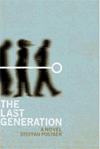Despite society’s relentless full disclosure, one topic is still verboten.
April 16, 2010
Do You Realize – that you have the most beautiful face
Do You Realize – we’re floating in space
Do You Realize – that happiness makes you cry
Do You Realize – that everyone you know someday will die-Flaming Lips
Do you realize one of the few remaining topics still off limits in general conversation is death? It may be the only one. The other inevitability, taxes is talked about all the time, especially with President Obama promising more and more of them. The subjects we are not supposed to bring up at a dinner party, religion and politics are ranted about with passion and impunity. And sex? Please. Our society has become so hyper-sexualized I can’t feel my dick anymore! The Internet, reality TV, and social media (not necessarily in that order) have not just opened doors of communication they’ve kicked them down and burnt the splinters. Nothing is taboo.
Except death. In particular our death. Save for the occasional funeral, none of us ever talk, text or tweet about death. Not with friends. Not with peers. Not even with our own family. It just doesn’t come up. It doesn’t want to come up. Sure, we can relate to death in the movies and news stories but not in our own lives.
Is that because it’s a downer? Well, so are the Chicago Cubs but we LOVE talking about them. I think it’s more than just being depressing that keeps all of us off the topic. I think our ignorance of death is just too profound to talk about. Ever.
More specifically, our fear of death is too profound. Even the most spiritual among us can’t say with any certainty what happens after we die. Heaven? Reincarnation? Fertilizer? No one knows. Nor will anyone ever know until it actually happens -which it will. And that’s just too scary to think about, let alone discuss. At least openly.
Death is the ultimate common denominator. There is no cure. No one can avoid it. It’ll happen to you. All that other stuff (sex, religion, politics) is inherently debatable. Those topics, if once politically incorrect, now electrify us. In addition, the ability to hide behind online personas makes us impervious to any sensitivity.
But pseudonyms are no protection from the Grim Reaper. Nothing is. Not God. Not even social media. Ashton Kutchner may have more Twitter followers than anyone on the planet but in fifty or so years he and they will all be dead. (You can’t tweet death!) Then what? Oh, I forgot…we don’t want to talk about that.
Check out this dark and lovely video about death by The Headlights (film courtesy of Daily Planet in Chicago.




 The Happy Soul Industry
The Happy Soul Industry The Last Generation
The Last Generation
Steffan,
GREAT post! I completely agree with what you say – and death is something that I actually like talking about. I don’t think it’s anything to shy away from.
In fact, i just started a blog and my first post is about death, essentially. You can see it here: http://absurdust.wordpress.com/2010/04/16/2-billion-heartbeats/
Thanks for all the good content!
Nick
Actually I talk about death quite a bit with people who are philosophically-minded.
We’re hung up on death (to our great detriment) in Western culture because we’re fixated on the illusion of an individual identity and linear time.
Creation and change comes into being through the finite and infinite aspects of the universe interacting. We (as an ego-identity) are currently experiencing the finite aspect of that most closely but the infinite aspect is just as much a part of us. And in fact, “finite” is inseperable from the “in-finite” source.
I think it raises some questions such as:
-is the tendency to avoid topic of death equally strong in all cultures or can it be especially prevalent in cultures e.g. with bigger focus on youthful appearance/behavior? Is it correlated to different approaches towards ‘passing’ e.g. ‘Halloween’ vs European All Saints’ Day?
-are social media an uniformly useful tool for communicating? We have seen some backlash for people communicating serious grief laden topics e.g. miscarriage http://tinyurl.com/y9tpya9 or accidents http://tinyurl.com/y9tjtrw
Maybe the issue is that we (and brands, but that’s a different topic) mistake ALL online communication channels to be equivalent to REAL relationships. I remember the ‘surprise’ that many expressed about pitfalls of online dating.
To conclude, I did feel connected with a nameless blogger who wrote about her (unsuccessful) fight with cancer. Her last entries were written by her husband. It was hard to explain to family and friends why I was crying the day she died.
Great comments all…what I’ve come to expect!
Funny, we’re all experts on babies & birth but such neophytes when it comes to death.
Deepak Chopra, who really is an amazing thinker, says “Death is opposite of birth, not opposite of life.”
Another comment (a bit on a boring side):
There might be biological reasons for our aversion to the topic of death: being fascinated by/ actively increasing knowledge of topics such as babies & birth (mommy blogs, Mommy Wars), food (Yelp, picture -rich foodie blogs, organic vs conventional, Biggest Loser etc) might be conductive/correlated to the individual’s chances of survival and thriving.
Unless you have a substantial writing talent and live in a right literary period, one’s obsession with death and passing will cause peer isolation and even lead to suicide. On the other hand, if you vehemently care about e.g. iPad or social media your can create connections within your peer group/society and even increase your social standing by e.g. carrying the said iPad around.
And as we heard from recent news, trying to carry a corpse into e.g. plane is not viewed with the same admiration as wheeling into a cabin with Louis Vuitton bag.
“Death is very likely the single best invention of life”
This is such an interesting topic. I think death is the ultimate reminder that we are not in control—we fear the unknown. I recently came across Steve Jobs’ commencement speech at Stanford University where he discussed pursuing our dreams in light of life’s setbacks, including death itself.
Death levels the playing field and the one thing we all have in common is that we don’t want to die. While we don’t talk about death because we fear losing control, he reminds us that we have control in the moments leading up to it. “Remembering I’d be dead soon has been the most important tool to help me make the big decisions in life.”
He provides great insight and (like usual) inspiration, check it out: http://www.ted.com/talks/steve_jobs_how_to_live_before_you_die.html
Interesting, too, how many people I know want to die in their sleep. Mostly people of my parent’s generation. While the Buddhists want to be fully awake and aware when it happens. They consider it one of the most important things we do in life.
Thanks for bringing up the d-word, Steffan.
Does the movie Bucket List come to anyone else’s mind? Just another sign that discussing death, even in movies, and even in movies with all-star actors, can make for an unpleasant experience.
The Boomers are going to be (are) the worst about this, of course.
They’re still in denial about being (at least) middle aged.
“Sixty is the new forty.”
Right.
Old persons are sometimes as unwilling to die as tired-out children are to say good night and go to bed. – Joseph Sheridan Le Fanu
Death is a marketing problem. It just needs to be repositioned:
BE GREEN: DIE. THE ULTIMATE RECYCLING.
I think religions have always been trying to reposition death:
-Die and receive 72 virgins (extra 2 if you call (ekhm..die) in the next 10 minutes.
-Thinking of something better post life? We guarantee a wonderful location with a great view. Good credit/bad credit – all accepted (but only if you are a part of our club) Pre-registration required (exception Mormons)
Yes, and the ruling class of societies use religious teachings on the “afterlife” to manipulate their subjects.
The gambit goes-
Obey us without question, no matter how crappy your life is on Earth, and then “Eternity” will be cool for you.
For instance, many in our country are taught to “store up treasures in heaven” by leaders are obviously focused on storing up treasures on Earth.
And let’s not forget the age old manipulation of teaching that “God wants to destroy all the people who happen to hold different political views from us. Do so, and you’ll be rewarded in heaven.”
“Religion is regarded by the common people as true, by the wise as false, and by the rulers as useful.” -Seneca (Roman philosopher)
I will give credit where it’s due: religions recognized and analyzed our discomfort with death only to came up with an unique selling proposition. You have to admit that most religions have pretty good copywriters!
Talk about death all the time. what i don’t talk about very much is advertising. that’s just a waste.
Been reading all these comments…
I’m wondering if social web allows people to open up about death in a way that “live” conversations can’t. I’m thinking about all those poignant blogs set up by the dying, etc. It is a very public conversation about death (something I wrote doesn’t exist. seems the Internet provides just the right filter enabling such honesty. Whew -heavy stuff. But good.
When I was thirteen I thought I wanted to die because it would be the end of suffering. I even prayed to a God I truly believed in for a way out of facing the life I was forced to live. Still, I can’t say I honestly thought about death. This was not at all the same as being suicidal. This was about the absence of choice when the only reality was increased suffering. Terminally ill patients must face this same “I’d-rather-live-but-not-if-all-I-can-do-is-suffer” dilemma. It occurs to me that despite the helpless of that situation, I would not have been cool with the actual finality of death. Like the kid I was, I might have wanted to call it off if God had actually answered. It seems one has to actually live to fully understand death. Living causes the inevitability of death to be the real absence of choice. Birth and death are final. Everything else can get a do-over.